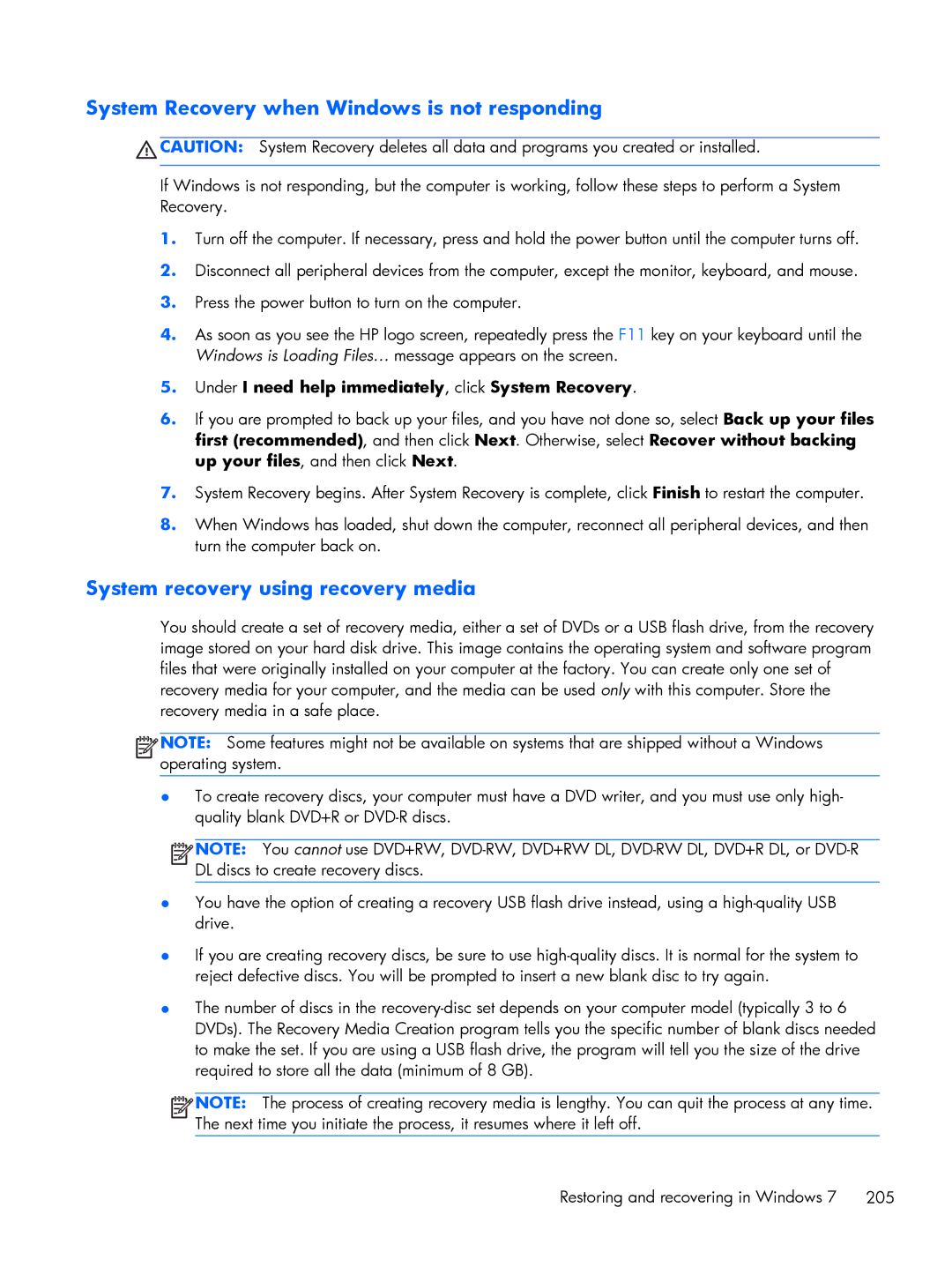
System Recovery when Windows is not responding
![]() CAUTION: System Recovery deletes all data and programs you created or installed.
CAUTION: System Recovery deletes all data and programs you created or installed.
If Windows is not responding, but the computer is working, follow these steps to perform a System Recovery.
1.Turn off the computer. If necessary, press and hold the power button until the computer turns off.
2.Disconnect all peripheral devices from the computer, except the monitor, keyboard, and mouse.
3.Press the power button to turn on the computer.
4.As soon as you see the HP logo screen, repeatedly press the F11 key on your keyboard until the Windows is Loading Files… message appears on the screen.
5.Under I need help immediately, click System Recovery.
6.If you are prompted to back up your files, and you have not done so, select Back up your files first (recommended), and then click Next. Otherwise, select Recover without backing up your files, and then click Next.
7.System Recovery begins. After System Recovery is complete, click Finish to restart the computer.
8.When Windows has loaded, shut down the computer, reconnect all peripheral devices, and then turn the computer back on.
System recovery using recovery media
You should create a set of recovery media, either a set of DVDs or a USB flash drive, from the recovery image stored on your hard disk drive. This image contains the operating system and software program files that were originally installed on your computer at the factory. You can create only one set of recovery media for your computer, and the media can be used only with this computer. Store the recovery media in a safe place.
![]()
![]()
![]()
![]() NOTE: Some features might not be available on systems that are shipped without a Windows operating system.
NOTE: Some features might not be available on systems that are shipped without a Windows operating system.
●To create recovery discs, your computer must have a DVD writer, and you must use only high- quality blank DVD+R or
![]()
![]()
![]()
![]() NOTE: You cannot use DVD+RW,
NOTE: You cannot use DVD+RW,
●You have the option of creating a recovery USB flash drive instead, using a
●If you are creating recovery discs, be sure to use
●The number of discs in the
![]()
![]()
![]()
![]() NOTE: The process of creating recovery media is lengthy. You can quit the process at any time. The next time you initiate the process, it resumes where it left off.
NOTE: The process of creating recovery media is lengthy. You can quit the process at any time. The next time you initiate the process, it resumes where it left off.
Restoring and recovering in Windows 7 205
